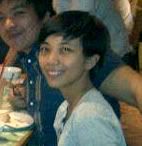The [research] suggested that every time we think about the past we are delicately transforming its cellular representation in the brain, changing its underlying neural circuitry. It was a stunning discovery: Memories are not formed and then pristinely maintained, as neuroscientists thought; they are formed and then rebuilt every time they're accessed. "The brain isn't interested in having a perfect set of memories about the past," [neuroscientist Joseph] LeDoux says. "Instead, memory comes with a natural updating mechanism, which is how we make sure that the information taking up valuable space inside our head is still useful. That might make our memories less accurate, but it probably also makes them more relevant to the future" (Lehrer, 2012).
--
I read this just as I'm asking myself why I happen to remember you right now, and why the remembering doesn't feel the way it once did. What anger is left is small and hard, no bigger than a fist. What pain is left is more cerebral; You don't feel angry because he, that person in particular, treated you that way, I tell myself. You feel angry because no one deserves to be treated that way. No one. Definitely not you.
For some reason, though, I can't help remembering now the way you fudged details. Three specific, related incidents stand out in my memory:
- "I think your friend had a crush on me back then," you once said to me, and we both laughed.
- "Her friend was in love with me," you once boasted, and your friends laughed.
- "I was surprised when he started going out with her. I kept getting the feeling he had a crush on me," my friend said, and the two of us shrugged.
Was it your memory, or something else?
--
Once you start questioning the reality of memory, things fall apart pretty quickly. So many of our assumptions about the human mind—what it is, why it breaks, and how it can be healed—are rooted in a mistaken belief about how experience is stored in the brain. ... We want the past to persist, because the past gives us permanence. It tells us who we are and where we belong. But what if your most cherished recollections are also the most ephemeral thing in your head?
...
Some changes were innocuous—the stories got tighter and the narratives more coherent—but other adjustments involved a wholesale retrofit. ... Over and over, the act of repeating the narrative seemed to corrupt its content. ... "What's most troubling, of course, is that these people have no idea their memories have changed this much," [psychologist Elizabeth Phelps] says. "The strength of the emotion makes them convinced it's all true, even when it's clearly not" (Lehrer, 2012).
--
All this time, I've been slightly panicked over memory. I have to remember this, I tell myself at important moments. I have to cast this in metal and then store this behind a bulletproof glass cabinet. It must remain intact, for me to view whenever I want, whenever I need it again.
If only I'd known, reviewing only sometimes polishes but also often destroys. Memory can be destroyed by the very act of remembering.
I think of the green of the leaves back home, the sight of my old house from my best friend's backyard, the carpet of yellow petals on the old driveway, the position of a plastic glow-in-the-dark Orion on my cabinet door—if families pack up and move, if buildings get old and fall down, if new buildings are put up in their place, if trees grow taller and bushes grow thinner, if photos fade or get deleted, and not even my own memory can be trusted, then what have I got left? What have I got left when remembering risks a horrible, grossly unintended self-betrayal?
I just want to remember.
--
This is a link to "Paris, at Night," by Sung. J. Woo. It is my favorite story about memory and possibly my favorite short story of all time. I think about it whenever I think about memory.
--
"Memory is like a million little houses" (Woo, 2009).
I don't want my neural neighborhood to change. I want to be able to recognize the streets and the people who live there. I'm only 24; this should be the worry of a 60-year-old lady at risk for Alzheimer's, but it isn't.
--

This is the Natividad Building on Escolta, in old Manila. It used to be green.

This is the Regina Building, also on Escolta. It used to have just three stories, wooden revolving windows, and an open-air corridor on top.
And still, I want them preserved.
###
Lehrer, J. (2012). The forgetting pill erases painful memories forever. Wired Magazine, vol. 20 no. 3. Retrieved from http://www.wired.com/magazine/2012/02/ff_forgettingpill/all/1
Woo, S.J. (2009). Paris, at night. Retrieved from http://www.eastoftheweb.com/short-stories/UBooks/PariNigh735.shtml










